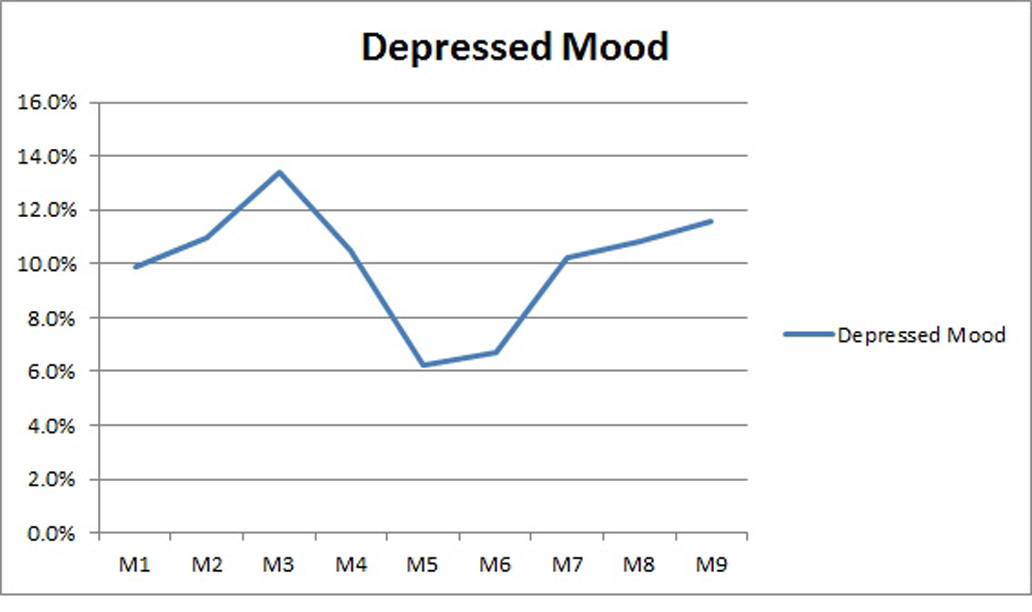No CrossRef data available.
Published online by Cambridge University Press: 15 April 2020
Pregnancy may cause somatic alterations and possible transformation in women's behaviour, emotions and cognition.
To analyse monthly somatic and cognitive changes in pregnancy.
To examine the pattern of cognitive (depressed mood, lack of self-esteem, guilt, lack of concentration, sensitivity to criticism, thoughts of death) and somatic (decreased energy, feelings of heavy limbs and feeling worse in the morning) symptoms throughout the 9 months of pregnancy.
N=374 women were interviewed once (6 weeks postnatal) using a modified version of the Structured Clinical Interview for DSM IV. Women were asked whether they had experienced each symptom at any time during pregnancy and if they said yes, the monthly symptom occurrence was assessed. Repeated measures General Linear Model analysis was used.
There were both linear (a) and quadratic (b) significant changes over time for sensitivity to criticism (Fa=20.9(1), Fb=7.02(1), pa,b=0.00), lack of concentration (Fa=37.0(1); Fb=10.3(1); pa,b=0.00), decreased energy (Fa=13.4(1), Fb=62.6(1); pa,b=0.00) and feelings of heavy limbs(Fa=92.9(1), Fb=67.7(1) pa,b=0.00). Guilt (F=0.00(1); p=0.93) showed no change over pregnancy, lack of self-esteem (F=10.15(1); p= 0.00) showed linear significance while depressed mood (F=5.15(1); p= 0.02) showed quadratic significance. After controlling for covariates, no significant interactions between them and all symptoms were found.
Cognitive symptoms changed throughout pregnancy as much as somatic symptoms. Most symptoms showed a different pattern from depressed mood (Figure 1). Sensitivity to criticism, lack of concentration, feelings of heavy limbs and decreased energy were especially high during late pregnancy.
Figure 1
Depression pattern through 9 months of pregnancy

Comments
No Comments have been published for this article.